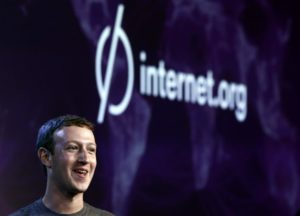 MARK ZUCKERBERG SAYS he is no enemy of net neutrality, and to prove it, he’s making a few changes to Internet.org, a Facebook-led effort to bring internet services to the developing world.
MARK ZUCKERBERG SAYS he is no enemy of net neutrality, and to prove it, he’s making a few changes to Internet.org, a Facebook-led effort to bring internet services to the developing world.
In a Facebook post today, the Facebook founder announced that from now on, any developer can offer an app through Internet.org—as long as it meets certain guidelines.
The news comes just weeks after several Indian publishers accused Internet.org of running afoul of net neutrality, because the organization was working with mobile carriers to determine which websites qualify to be included on the central Internet.org app, which is available for free across the developing world. The publishers argued that by giving away free access to some websites and not all of them, Internet.org was creating an unequal internet.
At the time, Zuckerberg defended Internet.org’s approach. Now, however, it seems that the criticism may have struck a chord, inspiring him to tear down the walls that surround Internet.org.
“Today, we’re taking the next step with Internet.org by enabling anyone to build free basic internet services to help connect the world,” Zuckerberg wrote in his post. “We’ll make faster progress towards connecting everyone if we all work together and give people even greater choice of services.”
Part of the ‘Roadmap’
Now, according to an interview with Chris Daniels, Facebook’s vice president of product for Internet.org, developers can join Internet.org if they can adhere to certain guidelines. In addition to agreeing to some technical requirements, they must prove that their app inspires users to explore the internet beyond the basic free services, an obvious attempt to convert free users into paying users down the line. Developers must also create a simplified version of their app or service, so it will work in places with limited connectivity.
According to Daniels, this open structure was always part of Internet.org’s “long-term roadmap.” But, he says, the debate in India “certainly accelerated our plans.” Daniels says the backlash also gave the team perspective as to what people’s biggest issues with the platform were. “When we listened to the people spearheading the net neutrality debate, the primary things we heard were around consumer choice and making sure that any developer can join,” he said. “Today we have addressed those.”
4 Billion With No Voice
Of course, this isn’t a perfect response to net neutrality supporters who criticize Internet.org. It still creates a fundamentally different pricing structure among users. And it’s not likely to make mobile carriers very happy. After all, giving away more services for free will make it much harder to convert people to paying customers down the line.
But in a video explaining the change, Zuckerberg made it clear that when it comes to expanding internet access to those who have none, concessions like these must be made from all sides. Because, as he reminds us in the video, there are still far too many people in the world who don’t even have the basic tools to have this argument.
“We have to ask ourselves what kind of community do we want to be? Are we a community that values people and improving people’s lives above all else or are we a community that puts the intellectual purity of technology above people’s needs?” he asked. “As we’re having this debate, remember the people this affects most: the 4 billion unconnected have no voice on the internet. They can’t argue their side in the comments below or sign a petition for what they believe, so we decide our character and how we look out for them.”
